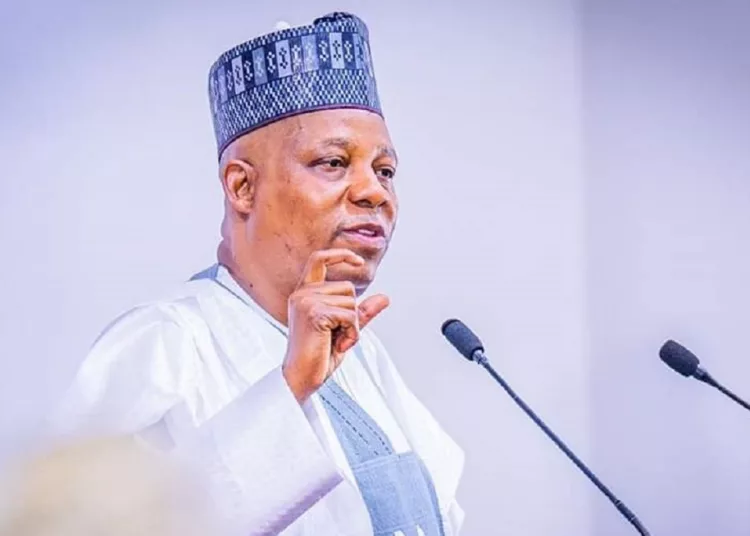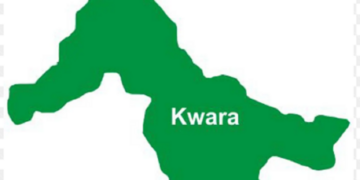National Economic Council (NEC) yesterday endorsed the Renewed Hope Development Plan (2026–2030) as Nigeria’s medium-term strategy to consolidate ongoing reforms and drive the administration’s ambition of building a $1 trillion economy by 2030.
The decision was taken at the Council’s 151st meeting, which was held at the Presidential Villa, Abuja, under the chairmanship of Vice President Kashim Shettima.
In his remarks, Shettima said the Renewed Hope Plan would succeed the National Development Plan (2021–2025), which expires at the end of this year, and will align Nigeria’s growth trajectory with the long-term aspirations of the Nigeria Agenda 2050.
“This, to us, is no ordinary transition. It is the bridge between lessons learnt and ambitions pursued. The Renewed Hope Plan will consolidate ongoing reforms, deepen policy continuity, and align our medium-term strategies with the long-term horizon of Nigeria Agenda 2050. It’s a practical roadmap towards a $1 trillion economy by 2030,” he said.
The vice president stressed that the plan would not be designed in isolation but would be participatory, involving state governments, local governments, organised private sector, labour, youth, civil society and traditional institutions.
According to him, “What is even more crucial is that this plan will not be drawn from the ivory towers of Abuja alone. It will be participatory. We are going to keep on engaging state governments, local governments, organised private sector, civil society, labour, youth, and traditional institutions, and the conversation begins here today.”
According to a statement by the spokesman of the vice president, Stanley Nkwocha, the Council urged effective participation by all states and stakeholders to ensure inclusivity and accelerated growth.
It also commended the Ministry of Budget and Economic Planning for kick-starting the process early enough to avoid a vacuum in national planning.
To guide the preparation of the plan, three governance structures — a National Steering Committee, a Central Working Group, and Technical Working Groups — will be set up, co-chaired by both public and private sector actors.
One governor from each geopolitical zone will serve on the Steering Committee, while state planning directors and local government representatives will serve on the technical groups.
The Renewed Hope Plan, according to the NEC resolution, will focus on job creation, human capital development, infrastructure expansion, food security and social protection. Work on the plan is expected to commence in September, with a target for completion before the end of the year, so that the 2026 national budget can be derived from it.
Aside from economic planning, NEC also considered updates on the nation’s health and fiscal position. It directed the Accountant General of the Federation to fast-track the release of funds for the next round of the national polio immunisation campaign, following reports of new cases in some high-risk states.
Epidemiological data presented to the Council showed a 46 per cent decline in circulating poliovirus type 2 cases in 2025, with Kano and Katsina states recording over 80 per cent reductions.
A fresh round of In-Between Round Activities across 11 states is scheduled for September, while a nationwide integrated campaign will hold in October, targeting children with polio, measles-rubella, and malaria interventions.
On food security, Shettima disclosed that the National Agency for Science and Engineering Infrastructure (NASENI) had scaled up local production of solar-powered irrigation pumps to reduce energy costs for farmers and boost dry-season cultivation.
He said, “This is the story of the nation’s refusal to be hostage to petrol-powered systems. This is an intervention to lower farmers’ energy costs, expand dry-season farming, and reinforce food security.”
The Council also received account updates from the Accountant General: as of August 27, 2025, the Excess Crude Account stood at $535,823.39, the Stabilisation Account at N78.45bn, and the Natural Resources Account at N106.7bn.
Shettima, in closing, charged members to continue making NEC a problem-solving platform. “Distinguished colleagues, you have made sure that this Council is not a stage for applause. You are the reason it is a workshop for solutions. Let this 151st meeting echo as a continuation of our covenant,” he said.
Briefing State House correspondents after the meeting, Minister of Budget and Economic Planning, Senator Atiku Bagudu, said the current development plan (2021–2025) expires in December, making it necessary to begin early work on the new framework to ensure continuity and inclusivity.
He explained that Agenda 2050, a 30-year prospective plan developed in 2020 with contributions from the private sector, civil society, traditional institutions, political parties, and other stakeholders, mandates the creation of six five-year plans to drive implementation.
“The new MTNDP 2026–2030 will consolidate ongoing reforms and respond to emerging socio-economic challenges. It will also provide a coherent framework to accelerate job creation, improve human capital, expand infrastructure, enhance food security, and strengthen social protection,” Bagudu said.
He added that the process will be participatory, involving the three tiers of government, political parties, organised private sector, civil society groups, youth, labour, and traditional leaders, among others.
Governance structures such as a National Steering Committee, a Central Working Group, and technical sub-committees will be co-chaired by public and private sector representatives, with governors representing the six geopolitical zones.
Council members, including Anambra Governor Charles Soludo, were said to have made contributions drawing from past experience with national plans. NEC commended the Budget and Planning Ministry for initiating the process early and urged states to actively participate.
In his briefing , Gombe State Governor Mohammed Inuwa Yahaya reported on the progress of the NEC Committee on Polio Eradication, which was established in December 2024 to tackle the circulating variant type 2 virus.
According to him, epidemiological data showed a significant decline in infections, with cases dropping from 78 at the same period in 2024 to 42 so far in 2025.
Kano and Katsina states recorded reductions of 85 per cent and 84 per cent, respectively, while Zamfara has had no cases this year. Of the 23 cases reported nationwide in 2025, Sokoto accounted for 13.
Governor Yahaya noted that vaccination coverage has steadily improved, reaching 84 per cent in June, with about 2.7 million children immunised during the last round of campaigns across 11 high-risk states.
He said integrated services, including nutrition supplements for pregnant women and anti-malaria interventions, were also being delivered.
NEC endorsed upcoming polio and immunisation campaigns, including a September 11–14 exercise across high-risk states and a nationwide integrated campaign in October targeting children aged 0–14 with vaccines for polio, measles, rubella, and malaria prevention.
The Council directed deputy governors, as state task force chairs, to convene meetings at least two weeks before each round, while local government chairmen were tasked to lead post-campaign mop-ups. Commissioners of Health and Primary Health Care agencies are to conduct reviews to close gaps.
Security agencies were also charged to provide cover in high-risk states such as Sokoto, Zamfara, and Kebbi to ensure maximum reach.
The National Primary Healthcare Development Agency requested prioritisation of resource allocation and timely release of funds, a call which NEC endorsed, urging the Accountant-General’s office to facilitate adequate and efficient financing for vaccination and primary health care programmes.











